Current Affairs March 2020 - National
1 - India suspended all regular visas and e-visas granted to nationals of eight countries
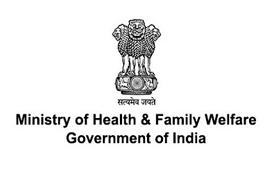
India has suspended all regular visas and e-visas granted to the nationals of eight countries in view of outbreak of COVID19, Novel Corona virus - France, Germany, Spain, China, Italy, Iran, South Korea and Japan.
The government has also advised all passengers having travel history to China, Hong Kong, South Korea, Japan, Italy, Thailand, Singapore, Iran, Malaysia, France, Spain and Germany to undergo self-imposed quarantine for a period of 14 days from the date of their arrival.
2 - GoS constituted for private passenger train operators to advise terms and conditions
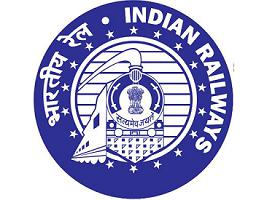
Railway Ministry has constituted a Group of Secretaries (GoS) to advise the terms and conditions for private passenger train operators to operate trains with world-class technology covering the Indian Railways network and provide world-class services. The GoS was formed for a 1-year term and will be headed by NITI Aayog CEO Amitabh Kant.
“Tejas” train, run by Indian Railway Catering and Tourism Corporation (IRCTC), is the first train operated by a private player. By 2022, the government wants to launch 150 privately-run passenger trains.
3 - MSDE launched Mahatma Gandhi National Fellowship programme in Bengaluru
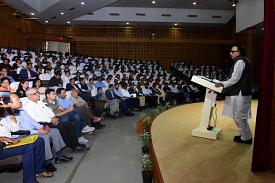
Union Minister Dr. Mahendra Nath Pandey launched the Mahatma Gandhi National Fellowship programme in IIM, Bengaluru. The Fellowship is launched as part of the SANKALP programme of the ministry to provide skilled manpower for District Skill Committees to prepare the District Skill Development plan.
Under the pilot project, IIMB will train 75 graduates for two years in preparing the District skill plan considering the skill gaps, market utilities, government schemes and institutions available in the district. Graduates from 75 districts in Uttar Pradesh, Gujarat, Rajasthan, Uttarakhand, Karnataka and Meghalaya are chosen for the training.
4 - Cabinet approved MoU between India and Côte d’lvoire for co-operation in the field of Health

The Union Cabinet has approved a MoU between India and Republic of Côte d'lvoire on co-operation in the field of Health.
The Memorandum of Co-operation covers the following areas of co-operation −
Exchange & training of medical doctors.
Regulation of drugs and pharmaceutical products.
Assistance in development of human resources and setting up of health care facilities.
Medical and health research development.
Development and improving the techniques and strategies for epidemiological surveillance.
5 - Cabinet approved the Foreign Direct Investment policy on Civil Aviation

Union Cabinet approved to amend the extant FDI Policy to permit Foreign Investment (s) in M/s Air India Ltd. by NRIs, who are Indian Nationals, up to 100% under automatic route. It is done to permit foreign investment up to 100% by those NRIs, who are Indian Nationals, in case of M/s Air India Ltd.
As per the present FDI Policy, 100% FDI is permitted in scheduled Air Transport Service/Domestic Scheduled Passenger Airline (Automatic up to 49% and Government route beyond 49%). However, for NRIs 100% FDI is permitted under automatic route in Scheduled Air Transport Service/Domestic Scheduled Passenger Airline.
6 - LLP settlement Scheme, 2020 launched

Central Government has introduced a scheme namely “LLP Settlement Scheme, 2020” to help non-compliant Limited Liability Partnership (LLP) firms turn compliant and enable ‘ease of doing business’ for such entities. The scheme came into force on March 16, 2020 and will remain in force up to June 13, 2020.
The scheme will be applicable to a “defaulting LLP” for filing documents, which were due for filing till October 31, 2019, on payment of a nominal additional fee of ₹10 per day for the period of delay.
7 - Union Government Gajendra Singh Shekhawat launched Swachh Bharat Mission (Grameen) Phase-II
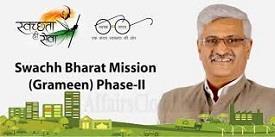
Union Minister Gajendra Singh Shekhawat launched Phase II of Swachh Bharat Mission (Grameen). SBM (G) Phase II will be implemented from 2020-21 top 2024-25 in a mission mode with a total outlay of Rs. 1,40,881 crores.
Phase – II of the SBM (G) will focus on sustaining the gains made under the programme in last five years in terms of toilet access and usage, ensuring that no one is left behind. It will ensure that effective solid and liquid waste management (SLWM) is instituted in every Gram Panchayat of the country.
8 - Ten projects worth Rs. 301.54 crores sanctioned for food processing sector
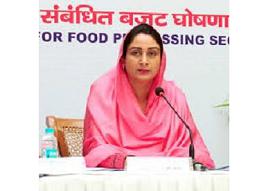
Ten projects worth Rs. 301.54 crore with total grant-in-aid of Rs 67.29 crore were sanctioned in a meeting of the Inter-Ministerial Approval Committee (IMAC) held in New Delhi. The projects were sanctioned under the ‘Agro Processing Cluster Scheme’ of Kisan Sampada Yojana of MoFPI. These projects are likely to generate employment for ten thousand people and benefit nearly forty thousand farmers. These projects are likely to generate employment for around 8000 people and benefit 32000 farmers in that region.
IMAC approved 8 projects spread over eight districts of Tamil Nadu under the cluster scheme worth 230 Crore rupees.
9 - DAY-NULM partnered with Amazon for e-marketing of products

Deendayal Antyodaya Yojana - National Urban Livelihoods Mission (DAY-NULM) signed MoU with Amazon for e-marketing of products made by Self Help Groups (SHGs) across the country in urban areas. It aims to provide access to wider customer base for products made by SHGs and strengthening the mission of creating sustainable livelihoods in urban areas.
Amazon’s promotion of products will be helpful in documenting and preserving the unique traditional art and crafts of different states. DAY-NULM is a flagship programme of the Ministry of Housing and Urban Affairs to provide self-employment opportunities to urban poor households.
10 - Indian Railways launched its first “Restaurant On Wheels”

Indian Railways launched its first ‘Restaurant on Wheels’ at the circulating area of Asansol Railway station for the use of Railway passengers as well as general public of Asansol. The Restaurant on Wheels at Asansol station circulating area was developed by refurbishing two over aged MEMU coaches. This unique effort will not only improve the facilities at Asansol station, but also generate non-fare revenue earnings approximately Rs.50 lakhs in the next five years.
Two new air-conditioned Retiring Rooms and Electronic Reservation Chart Display System (through MPLAD fund) and a Battery operated Car at Asansol station were also inaugurated.
11 - Multilingual version of “Incredible India” website launched
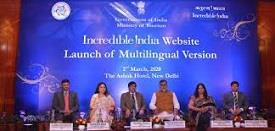
The Minister of State (IC) for Tourism & Culture, Shri Prahlad Singh Patel launched multilingual Incredible India website. Ministry of Tourism has revamped the multilingual Incredible India website design, with an aim to provide more information about India’s tourist destinations. The website now comprises of a plethora of information around 165 destinations, 2700+ pages, 28 States and 9 Union Territories along with multiple attractions.
The website is launched in Chinese, Arabic and Spanish with primary objective to effectively engage the visitors.
12 - India signed 40 million USD defence deal with Armenia
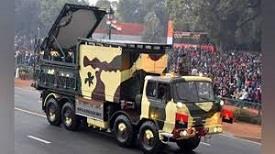
India bagged a deal of worth 40 million USD to supply 4 indigenously built radars (capable of locating weapons) to Armenia in Europe. The radars will provide fast, automatic and accurate location of enemy weapons like mortars, shells and rockets in a 50 km range. The deal is aimed for the ‘Make in India’ programme in the defence sector.
Under the deal, India will supply 4 SWATHI weapon locating radars. The weapon is to be developed by the Defence Research and Development Organisation (DRDO) and manufactured by Bharat Electronics Limited (BEL).
13 - GoI plans to have at least one PMBJP Kendra in every block
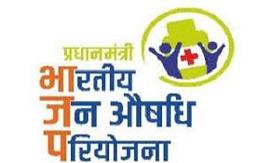
The Union Government plans to open 2,500 new Jan Aushadhi stores by 2020 in order to have at least one Pradhan Mantri Bhartiya JanAushadhi Pariyojana (PMBJP) Kendra in each block of India. Currently, there are over 5,000 Jan Aushadhi stores across the country.
Under the PMBJP, the government provides more than 800 medicines and 154 surgicals through Jan Aushadhi centres. Jan Aushadi stores across the country are serving 10-15 lakh people per day.
14 - Google India launched skill programme designed for women

Google India on Friday introduced DigiPivot, a skilling programme designed for women, who are looking to return to their corporate careers after a break or simply planning to make mid career shifts to digital marketing. The programmme is developed jointly in association with Avtar, a career portal service for women, and the Indian School of Business.
The programme aims to influence the overall gender mix in the digital marketing landscape in India and will provide an opportunity for 200 women professionals to re-skill themselves.
15 - Centre invoked ‘Epidemic Act’ and ‘Disaster Management Act’ to prevent spread of coronavirus

The Centre has decided to invoke Epidemic Act 1897 to combat novel coronavirus in India. The Act provides for prevention of the spread of “dangerous epidemic diseases".
All the states and union territories of India are advised to invoke the provisions of Section 2 of the Epidemic Disease Act 1897. It provides for detention of people or any vessel that come from international shores and are seen potent to spread the epidemic in the country.
16 - Government targets to achieve sales of around 70 lakh hybrid and electric vehicles in 2020

The government has set an ambitious target to achieve sales of around 70 lakh hybrid and electric vehicles by the end of 2020. The government had initiated Faster Adoption and Manufacturing of Hybrid and Electric Vehicles in India, FAME scheme in 2015 to promote the manufacturing of electric and hybrid vehicle technology under the National Electric Mobility Mission Plan 2020.
The government has announced an outlay of Rs.10,000 crore for Phase 2 of the FAME Scheme. Rs.1,000 crore has been earmarked for setting up charging stations for electric vehicles in India.
17 - Census India-2021 to be conducted in two phases
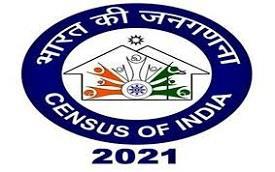
The Census India-2021 will be conducted in two phases. The first phase will begin from the 1st of April and will continue until the 30th of September, 2020. The second phase is Population Enumeration which will be conducted from 9th February to 28th February 2021 throughout the country simultaneously.
Indian census is the largest single source of a range of statistical data on different characteristics of the people of the country. It is a comprehensive collection of data relating to the people of India every 10 years.
18 - Cabinet approved scheme for RoDTEP
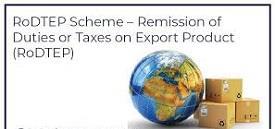
The Cabinet Committee on Economic Affairs has given its approval for introducing the Scheme for Remission of Duties and Taxes on Exported Products (RoDTEP). A mechanism would be created for reimbursement of taxes/ duties/ levies, at the central, state and local level, which are currently not being refunded under any other mechanism, but which are incurred in the process of manufacture and distribution of exported products.
This scheme is going to give a boost to the domestic industry and Indian exports providing a level playing field for Indian producers in the International market, so that domestic taxes/duties are not exported.
19 - POCSO rules notified by government with stringent punishments for Child abuse cases

The Union Government has notified the Protection of Children from Sexual Offences Rules, 2020 which enables implementation of recent amendments to the Act under which provisions of punishment for child abuse has been made more stringent.
Some of the significant additions in the new rules include provision of mandatory police verification of staff in schools and care homes, procedures to report sexual abuse material (pornography), imparting age-appropriate child rights education among others.
20 - India to provide 107.01 million Nepali Rupees for three new school buildings in Nepal
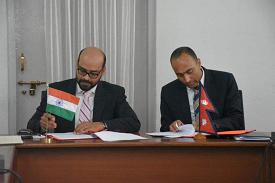
The Government of India will provide 107.01 million Nepali Rupees for three new school buildings in Nepal. Two schools will be built under the India-Nepal Development Partnership program at a total estimated cost of 73.96 million Nepali Rupees in Darchula and Dhanusha districts.
The Government of India has also committed an amount of 33.05 million Nepali Rupees for the construction of new school buildings in Kapilvastu district. The India will provide funds while construction work, including a call for tender, the award of work and day to day supervision, will be by Nepal.
21 - Parliamentary panel reports annual post-harvest losses of Rs. 61,000 crore in fisheries

According to a parliamentary panel, India faces annual post-harvest losses of Rs. 61,000 crore in production of marine and inland fisheries. For Marine Fisheries the losses stand at 15,000 crore rupees. The report was submitted by Chairperson to the standing committee on Agriculture, P.C. Gaddigoudar.
The panel has reported that the possible causes for Post-harvest losses are faulty handling practices, inordinate delay in packing and transportation, lack of proper cold storage facilities, and lack of technological know-how for harvesting fishes.
22 - TCIL signs MoU with The Gambia for MEA's eVBAB Network Project

Telecommunications Consultants India Ltd (TCIL) signed a Memorandum of Understanding (MoU) with The Gambia for the eVBAB Network Project. Gambia will participate in the eVBAB Network Project for tele-education and tele-medicine in Africa.
The Gambia is the 16th country to participate in the e-Network Project. TCIL was set up in 1978 for providing Indian telecom expertise in all fields of telecom, Civil and IT to developing countries around the world.
23 - “Technology Innovation Hub” to be established at IIT Mandi
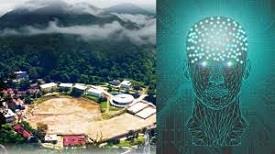
Under its National Mission on Interdisciplinary Cyber-Physical Systems (NM-ICPS), the Department of Science and Technology (DST) has sanctioned Rs 7.25 crore to IIT Mandi to establish a Technology Innovation Hub (TIH) at the Institute. The focus of the TIH in IIT Mandi will be research on human-computer interaction (HCI).
NM-ICPS is implemented by DST at a total outlay of Rs. 3,660 crore for a period of five years. The Mission aims at the establishment of 15 numbers of Technology Innovation Hubs (TIH), six numbers of Application Innovation Hubs (AIH) and four numbers of Technology Translation Research Parks (TTRP).
24 - Facebook launched ‘Pragati’ to boost women entrepreneurship in India

Facebook India called for applications for its CSR initiative, Facebook Pragati. It is powered by The/Nudge Centre for Social Innovation (N/Core). The initiative will incubate and accelerate early-stage women-led non-profits that are working to drive women entrepreneurship.
Facebook Pragati will award four grants of up to Rs.50 lakh for each non-profit. Each non-profit will be mentored by an N/Core Partner - which include Kamakshi Rao (Partner, Ankur Capital); KR Lakshminaraya (Chief Endowment Officer of Azim Premji Foundation) and SK Jain (Co-founder, WestBridge Capital), among others.
25 - Government brings masks and hand sanitizers under the Essential Commodities Act

In view of the ongoing outbreak of COVID-19 (Corona Virus), Government of India has notified an Order under the Essential Commodities Act to declare masks and hand sanitizers as Essential Commodities up to 30th June, 2020 by amending the Schedule of the Essential Commodities Act, 1955. It has also issued an advisory under the Legal Metrology Act.
Under the E.C Act, after discussions with the manufacturers, States can ask them to enhance their production capacity of these items, to make the supply chain smooth, while under the L.M. Act the States can ensure sale of both the items at MRP.
26 - India’s first Living Culinary Arts Museum enters Limca Book of Records
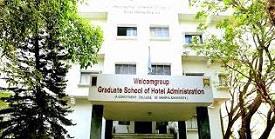
Welcomgroup Graduate School of Hotel Administration (WGSHA) of Manipal Academy of Higher Education (MAHE) entered the Limca Book of Records (LBR) for establishing “India’s First Living Culinary Arts Museum” at WGSHA, Manipal, Karnataka. The museum was opened in the year April 2018. It is spread approximately over 25,000 square feet & the structure of the museum is shaped in the form of a giant pot.
Limca Book of Records (LBR) is a catalogue of achievements made by Indians, at home and abroad in diverse fields of human endeavour.
27 - GoI pledged $10 million for Covid-19 emergency fund
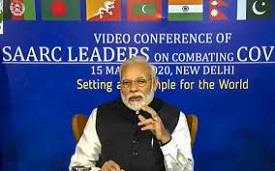
India pledged $10 million toward a Covid-19 emergency fund proposed by PM Narendra Modi for South Asian Association for Regional Co-operation (SAARC) nations. The Sri Lankan government also committed for $5 million for the SAARC Corona Emergency Fund.
Bangladesh has promised $1.5 million to the fund. Nepal has announced to contribute approximately $1 million to the COVID-19 Emergency Fund. Maldives has contributed USD 200,000 to the fund while Afghanistan has pledged $1 million.
28 - Widespread uranium contamination found in India's groundwater
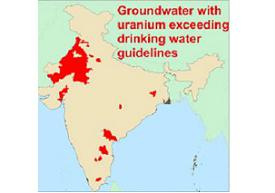
There is prevalence of Uranium concentration above 30 micro-gram per litre (World Health Organization (WHO) provisional guidelines) in groundwater aquifers in 16 Indian states. The report was brought out by Duke University, USA in association with Central Ground Water Board and State Ground Water departments.
The primary source of the contamination is natural, but human factors such as groundwater-table depletion and nitrate pollution may exacerbate the problem.
29 - APEDA signed MoU with SFAC
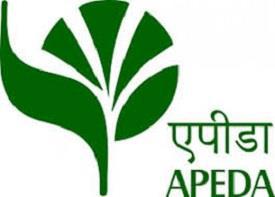
Agricultural and Processed Food Products Export Development Authority (APEDA) signed MoU with Small Farmers Agribusiness Consortium.
Areas of co-operation:
SFAC to share list of all clusters in various states with APEDA for achieving scale and aggregation with export orientation.
APEDA to facilitate certification of organic produce / areas by the FPCs assisted or identified by SFAC.
To take-up an Agri Business Promotion Unit in the North East and to mentor and handhold the FPOs in North East.
APEDA will be able to reach to a large farmer base for improving the production base of agri products.
30 - Agreement between India and Brunei for Exchange of Information notified
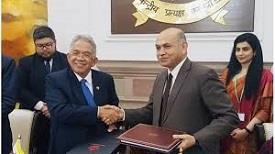
The Agreement between the Government of the Republic of India and the Government of Brunei Darussalam for the exchange of information and assistance in collection with respect of taxes was signed in New Delhi. The Agreement was notified in the Gazette of India.
The Agreement enables exchange of information, including banking and ownership information, between the two countries for tax purposes and provides for representatives of one country to undertake tax examinations in the other country.
31 - Center approved setting up of National Technical Textile Mission

The government approved the proposal for creation of National Technical Textiles Mission for a period of 4 years with an outlay of Rs.1,480 crores. The focus of the Mission is for developing on usage of technical textiles in various flagship missions, programmes of the country including strategic sectors.
The use of geo-textiles in highways, railways and ports will result in robust infrastructure, reduced maintenance cost and higher life cycle of the infrastructure assets. The use of technical textiles in agriculture, aquaculture, dairy, poultry, etc. will bring an overall improvement in cost economy.
32 - Innovate for Accessible India campaign launched to empower PwD
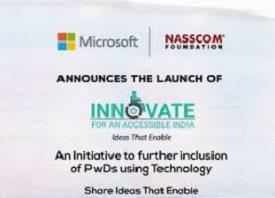
Microsoft India and NASSCOM Foundation launched ‘Innovate for Accessible India’ campaign to empower people with disabilities. Innovate for Accessible India is a nation-wide innovation challenge aimed at empowering people with disabilities with the technology and tools required for better integration into society and access to equal opportunities.
The campaign will be an aggregator of workable technology solutions developed using Microsoft Cloud, Artificial Intelligence and other technologies that address gaps faced by people with disabilities. The key areas of focus that developers are encouraged to address include mobility, e-governance and health.
33 - Shipping Ministry launched ’Ropax’ ferry service in Maharashtra

Union Minister of State for Shipping Mansukh Mandaviya launched ‘Ropax’ passenger ferry service between Mumbai and Mandwa, Maharashtra. ‘Ropax’ is roll on-roll off cum passenger ferry service, capable of carrying 200 cars and 1,000 passengers. Since, the road distance between Mumbai and Mandwa is 110 kilometres, Ropax can reach speeds of 14 knots and complete the 18-kilometre sea journey in 45 minutes to one hour.
’Ropax’ ferry service is built at Mumbai Port Trust at the cost of Rs.31 crore, whereas at Mandwa, it is built at the cost of ₹135 crore.
34 - CRPF & Aditya Mehta foundation signed MoU to enable the ‘Divyang Warriors’

Central Reserve Police Force & Aditya Mehta foundation inked MoU to enable the 'Divyang Warriors'. The deal will train its troops, who lost their limbs in operations, in various skills including cyber operations, artificial intelligence and para-sports. This will enable the ‘Divyang Warriors’ lead a self-esteem driven productive life in Hyderabad.
The novel idea that drives the MoU is to re-purpose the latent talent of the ‘Divyang Warriors’ of CRPF in diverse fields ranging from para-sports to cyber space.
35 - Oil India signed COSA agreement with Numaligarh Refinery
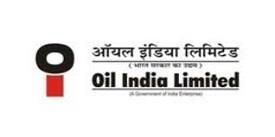
India's second-largest national oil explorer, Oil India Limited (OIL) has inked the Crude Oil Sales Agreement (COSA) with Numaligarh Refinery. MoU was inked with an aim to streamline sale and purchase transactions of crude oil, which will be produced from fields in the North East India.
Oil India Limited is the second largest hydrocarbon exploration and production Indian public sector company engaged in the business of exploration, development and production of crude oil.
36 - Benefits to COVID-19 affected workers under Atal Beema Vyakti Kalyan Yojana
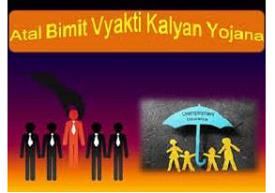
The Ministry of Labour and Employment launched ‘Atal Beema Vyakti Kalyan Yojana’ that allow workers to avail benefits of unemployment insurance if they are impacted by the coronavirus. Coronavirus disease 2019 (COVID-19) is an infectious disease caused by severe acute respiratory syndrome coronavirus 2 (SARS-CoV-2). The disease spread globally, resulting in the 2019–20 coronavirus pandemic.
The scheme aims to provide unemployment insurance to workers who have subscribed to the Employees’ State Insurance (ESI) scheme. ESI is a self-financing health insurance scheme for formal sector workers in India.
37 - NAVIC Messaging System for Fisheries Department

Indian Space Research Organisation designed NavIC messaging system and developed a NavIC receiver and the Indian National Centre for Ocean Information System (INCOIS) is using this messaging system to broadcast emergency warning messages like cyclone, tsunami and high waves as and when it occurs and also for broadcasting of information of Potential Fishing Zone (PFZ).
The Fisheries Department of various coastal States have been made aware of this technology for the fishermen community. ISRO has distributed about 250 units each to the State Fisheries Department of Kerala and Tamil Nadu for the use of fishermen.
38 - Government announced complete nationwide lockdown for 21 days to fight COVID-19
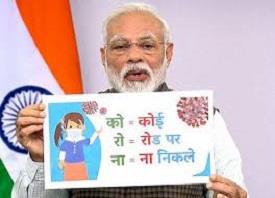
The government of India announced a complete lockdown of the entire country for 21 days to fight COVID-19. All road, rail and air services will remain suspended during the lockdown until 14th April, which came into force midnight beginning 25th March.
The government felt the need for uniformity across all states and invoked powers under the National Disaster Management Act, 2005, to enforce the countrywide lockdown. Prime Minister Narendra Modi has announced a Central allocation of 15,000 crore rupees to strengthen the health infrastructure to tackle the disease.
39 - Nation observed Janta curfew in fight against Covid-19

India observed Janata curfew on 22 March 2020 to help reduce community spreading of coronavirus disease in the country. It was introduced by the Prime Minister of India, Narendra Modi, in the wake of the 2020 coronavirus pandemic. The Janata curfew was a 14 hour curfew (7am-9pm).
At 5 pm, all citizens stood in their doorways, balconies or windows, and clap their hands or ring their bells in appreciation for the professionals delivering the essential services. The 'essential services' included police, medical services, media, home delivery professionals and firefighters.
40 - Cabinet approved Production Linked Incentive Scheme for Large Scale Electronics Manufacturing

The Union Cabinet has approved the Production Incentive Scheme (PLI) for Large Scale Electronics Manufacturing. The scheme proposes production linked incentive to boost domestic manufacturing and attract large investments in mobile phone manufacturing and specified electronic components including Assembly, Testing, Marking and Packaging (ATMP) units.
The Scheme shall extend an incentive of 4% to 6% on incremental sales (over base year) for a period of 5 years. The total cost of the proposed scheme is approximately INR 40,995 crore.
41 - Cabinet approved Modified Electronics Manufacturing Clusters (EMC 2.0) Scheme
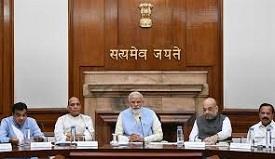
The Union Cabinet has approved financial assistance to the Modified Electronics Manufacturing Clusters (EMC2.0) Scheme for development of world class infrastructure along with common facilities and amenities through Electronics Manufacturing Clusters (EMCs). The total outlay of the propose EMC 2.0 Scheme is Rs. 3,762.25 crore.
The Scheme will create a robust infrastructure base for electronic industry to attract flow of investment in ESDM sector and lead to greater employment opportunities. India’s electronics production has increased from US$29 billion in 2014-15 to US$ 70 billion in 2018-19. It accounts for 2.3% of India’s GDP.
42 - COVID-19 outbreak: Relief measures announced to boost economy
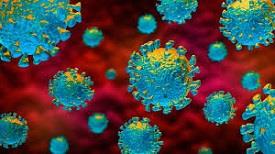
The Government has announced a slew of measures to provide relief to people and business community by relaxing the compliance and regulatory norms in the wake of COVID-19 outbreak. The last date for filing of income tax return for the financial year 2018-19 has been extended till June 2020. Interest on delayed payment of income tax has also been reduced to 9%.
Vivad Se Vishwas scheme, PAN-Aadhar linking, Sabka Sath, Sabka Vishwas scheme and last date for filling of GST return for the month of March, April and May have also been extended till June.
43 - COVID-19: Government banned export of all ventilators, sanitizers
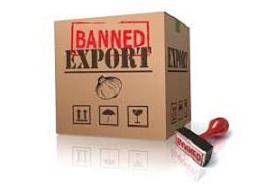
As a result of COVID-19 pandemic, Government has prohibited the export of all ventilators, including any artificial respiratory apparatus or oxygen therapy apparatus or any other breathing device. The government has also prohibited the export of all Sanitizers. The Ventilators were put in the prohibited category.
Directorate General of Foreign Trade further amended the export policy. It widens the ambit of products under the prohibited category and will prevent any scope of export of these items by any other classification.
44 - Cabinet approves MoU between India and Germany in Railway sector

The Union Cabinet was apprised of a Memorandum of Understanding (MoU) signed between Ministry of Railways, Government of India with DB Engineering & Consulting GMBH of Germany for technological cooperation in Railway Sector. The MoU will enable co-operation in the following areas −
Freight operations.
Passenger operations.
Infrastructure building and management.
Development of a modern, competitive railway organisation.
IT solutions for railway operations, marketing and sales as well as administrative purposes.
Predictive Maintenance.
Private train operations.
45 - Cabinet approved scheme for Promotion of manufacturing of Electronic Components and Semiconductors

The Union Cabinet has approved to offer financial incentive of 25% of capital expenditure for the manufacturing of goods that constitute the supply chain of an electronic product under the Scheme for Promotion of manufacturing of Electronic Components and Semiconductors (SPECS).
The scheme will help offset the disability for domestic manufacturing of electronic components and semiconductors in order to strengthen the electronic manufacturing ecosystem in the country. The total cost of the scheme is approximately Rs.3,285 crore, which includes the incentive outlay of approximately Rs.3,252 crore and the administrative expense to the tune of Rs.32 crore.
46 - Cabinet approved promotion of the Domestic Manufacturing of Medical Devices in country

The Union Cabinet has approved the following schemes −
The scheme on Promotion of Medical Device Parks for financing Common Infrastructure Facilities in 04 Medical Device Parks with financial implications of Rs. 400 crore.
The Production Linked Incentive (PLI) Scheme for promoting domestic manufacturing of medical devices with financial implications of Rs. 3,420 crore.
The expenditure to be incurred for the above schemes will be for the next five years i.e. from 2020-21 to 2024-25.
47 - Cabinet approved promotion of Bulk Drug Parks

The Union Cabinet has approved the scheme on Promotion of Bulk Drug Parks for financing Common Infrastructure Facilities in 3 Bulk Drug Parks with financial implication of Rs. 3,000 crore for next five years.
Government of India will give Grants-in-Aid to States with a maximum limit of Rs. 1,000 Crore per Bulk Drug Park. Parks will have common facilities such as solvent recovery plant, distillation plant, power & steam units, common effluent treatment plant etc.
48 - Cabinet approved Production Linked Incentive Scheme
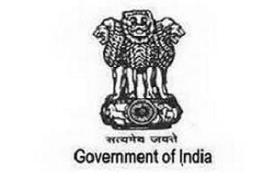
The Union Cabinet has approved the Production Linked Incentive (PLI) Scheme for promotion of domestic manufacturing of critical KSMs/Drug Intermediates and APIs in the country with financial implications of Rs 6,940 crore for next eight years.
Financial incentive will be given to eligible manufacturers of identified 53 critical bulk drugs on their incremental sales over the base year (2019-20) for a period of 6 years. Out of 53 identified bulk drugs, 26 are fermentation based bulk drugs and 27 are chemical synthesis based bulk drugs.
49 - Cabinet approved signing and ratifying of the Extradition Treaty between India and Belgium
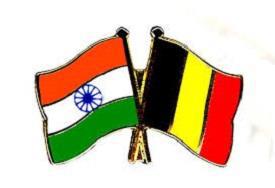
The Union Cabinet has approved the signing and ratifying of the Extradition Treaty between India and Belgium. The Treaty would provide a legal framework for seeking extradition of terrorists, economic offenders, and other criminals from and to Belgium. After ratification, the Treaty will enter into force from the date of exchange of instruments of ratification between India and Belgium.
Each Party agreed to extradite to the other any person found in its territory, who is accused or convicted of an extraditable offence in the territory of the other Party.
50 - Cabinet approved inclusion of the AYUSH Health & Wellness Centres component of Ayushman Bharat in National AYUSH Mission
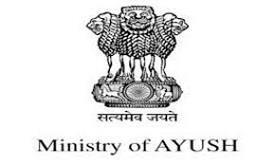
The Union Cabinet has approved the inclusion of AYUSH Health and Wellness Centre (AYUSH HWC) component of Ayushman Bharat in National AYUSH Mission (NAM). The proposal entails an expenditure of Rs. 3,399.35 Crore (Rs.2,209.58 Crore as Central Share and Rs. 1,189.77 crore as State share) for operationalisation of AYUSH HWCs within a period of five years, i.e. from financial years 2019-20 to 2023-24.
The Ministry of AYUSH has proposed following two models for operationalisation of 12,500 AYUSH Health & Wellness Centres −
Upgradation of existing AYUSH dispensaries (approximately 10,000)
Upgradation of existing Sub Health Centres (SHCs) (approx. 2,500)
51 - Reliance Industries sets up India's first Covid-19 dedicated hospital

Reliance Industries Limited (RIL) has set up India's first COVID-19 dedicated hospital in Mumbai. It includes a negative pressure room that helps in preventing cross-contamination and helps to control infection.
Sir HN Reliance Foundation Hospital in collaboration with the Brihanmumbai Municipal Corporation (BMC), has set up a dedicated 100 bedded COVID-19 centre at Seven Hills Hospital, Mumbai. All beds in the hospital are equipped with the required infrastructure, bio-medical equipment such as ventilators, pacemakers, dialysis machine and patient monitoring devices.
52 - BRO opens new bridge over Teesta River in North Sikkim
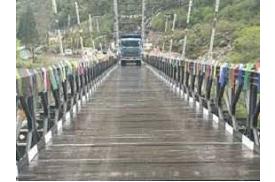
The Border Roads Organisation (BRO) has opened a new bridge for traffic in North Sikkim. The bridge is located over Teesta River in Munshithang near Chungthang town and built under Project Swastik. It has been constructed by the 86 Road Construction Company (RCC) of 758 Border Roads Task Force (BRTF).
Government has approved a five year (2018-23) Long Term Roll on Works Plan (LTRoWP) to concentrate simultaneously on the Northern and North-Eastern Borders for the construction/improvement for 265 roads of length 14224.12 kilometer, 4 Ditch cum Bund (DCB) of length 353.22 km and 4 bridges (Br).
53 - Centre announced relief package worth Rs 1.7 lakh crore for poor
Prime Minister Gareeb Kalyan scheme: MNREGA wages increased from 182 to 202 rupees with effect from 1st April.
Insurance cover of 50 lakh rupees per person for three months for COVID-19 warriors.
Additional 5 kilo rice or wheat will be given for the next three months.
One kilo of preferred pulses will be given per family for free under Pradhan Mantri Anna Yojana.
Women Jan Dhan Account holders will get 500 rupees per month for the next three months.
Poor senior citizens, widows and disabled will get an ex-graita of 1,000 rupees.
Farmers will get 2,000 rupees in first week of April in their account under existing Prime Minister's Kisan Yojana.
Government will contribute employees as well as employer's contribution to the provident fund for the next three months of companies with up to 100 employees with 90% earning not more than 15,000 rupees.
Free gas cylinders to poor families for the next three months under UJJWALA scheme.
Limit of collateral-free loans to women self-held groups doubled to 20 lakh rupees.
Workers will be allowed to draw a non-refundable advance of 75% from credit in provident fund account or three months salary, whichever is lower.
State Government to utilise the funds available under District Mineral Fund for supplementing and augmenting facilities of medical testing, screening and other requirements in connection with preventing the spread of COVID-19 pandemic as well as treating the patients affected with this pandemic.
54 - Invest India Business Immunity Platform launched

Invest India, India’s national Investment Promotion & Facilitation Agency, under the Ministry of Commerce and Industry has launched The Invest India Business Immunity Platform. It is designed as a comprehensive resource to help businesses and investors get real-time updates on India’s active response to COVID-19 (Coronavirus).
The Business Immunity Platform (BIP) is the active platform for business issue redressal, operating 24/7, with a team of dedicated sector experts and responding to queries at the earliest. Invest India has also announced a partnership with SIDBI (Small Industries Development Bank of India) for responding and resolving queries for Micro, Small and Medium Enterprises (MSMEs).
55 - Government banned export of anti-malarial drug Hydroxychloroquine
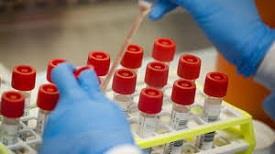
The Government of India banned exports of anti-malarial drug hydroxychloroquine, which is claimed to be effective in treating Covid-19 patients. The exports will be allowed from special economic zones and to fulfil prior obligations or for humanitarian efforts by the government.
The utilisation of hydroxychloroquine has been recommended by the Indian Council of Medical Research for the treatment of healthcare workers who are handling suspected or confirmed coronavirus cases and also the asymptomatic household contacts of the lab-confirmed cases.
56 - OFB designated 285 beds for coronavirus cases
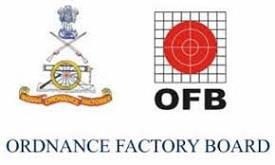
The Ordnance Factory Board (OFB) has designated a total of 285 beds for isolation wards to handle novel coronavirus cases. It includes −
40 beds in hospitals at Vehicle Factory Jabalpur.
30 beds each at Metal and Steel Factory Ishapore, Gun and Shell Factory Cossipore, Ammunition Factory Khadki, Ordnance Factory Kanpur, Ordnance Factory Khamaria, Ordnance Factory Ambajhari.
25 beds at Ordnance Factory Ambernath.
20 beds each at Heavy Vehicle Factory Avadi and Ordnance Factory Medak.
57 - EC allows use of indelible ink for home quarantine stamps
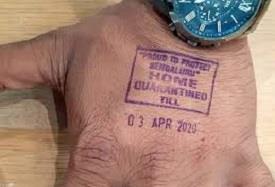
The Election Commission of India has allowed the use of indelible ink to mark quarantined coronavirus suspected and confirmed cases. The ink would be used to stamp people who have been advised to stay under quarantine.
The ECI has instructed the concerned authorities to not use the indelible ink on any finger of the left hand of any persons because according to the Conduct of Elections Rules, 1961, the left forefinger is marked with indelible ink at polling stations before voting.
58 - AIIMS started tele-consultation facility
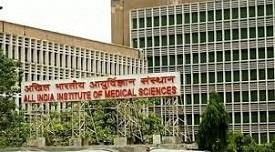
All India Institute of Medical Sciences, New Delhi has started a tele-consultation facility for its follow-up patients called CoNTeC. The project CoNTeC is an acronym for COVID-19 National Teleconsultation Centre.
CoNTeC has been made operational at AIIMS with a view to connect the Doctors across the country to AIIMS in real time for treatment of the COVID-19 patients. Expert doctors from various clinical domains will be available 24x7 to answer the multifaceted questions from specialists from all over the country.
59 - “Corona Studies Series” launched by National Book Trust
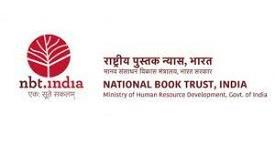
National Book Trust (NBT) launched Corona Studies Series books to provide relevant reading materials for all age-groups for the post-Corona readership needs. The book will provide suitable platform to authors and researchers willing to contribute in this genre. The ‘Corona Studies Series’ will be the long-term contribution to prepare and engage readers with the various aspects of the Corona times.
Coronavirus disease (COVID-19) is an infectious disease caused by a new virus. The disease causes respiratory illness (like the flu).
60 - CII created “CII COVID Rehabilitation and Relief Fund”
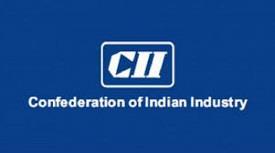
The Confederation of Indian Industry announced creation of CII COVID Rehabilitation and Relief Fund (CRR) to assist small enterprises or Micro, Small and Medium Enterprises (MSME) in rehabilitation. The fund will help MSMEs tide over the crisis would help them to pay wages.
Setting up of a special MSME Factoring fund to enable MSMEs to discount their bills to approved retailers in 15 days and permit retailers to pay in 120 days would help in faster realisation. CII requested its members to contribute an amount from their Corporate Social Responsibility (CSR) allocation for the CII COVID Rehabilitation and Relief Fund (CRR).
61 - India-Japan signed Rs. 15,295 crores rail project
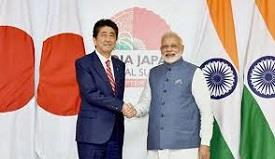
India signed Rs. 15,295 crores rail project agreement with Japan for three mega rail infrastructure projects. As per MOU, Rs. 8,553 crore is assigned for phase-1 of the Dedicated Freight Corridor; Rs. 4,262 crore for Mumbai Trans Harbour Link Project (II) and Rs. 2,480 crore for the Mumbai Metro Line 3 Project (III).
Dedicated Freight Corridor Corporation of India Ltd. (DFCCIL) is the executing agency of the project. The deal will increase in freight transport demand in India by constructing new dedicated freight railway system between Delhi and Mumbai and promote comprehensive regional economic development along the freight corridor.
62 - Indian Army launched “Operation Namaste” to combat COVID-19
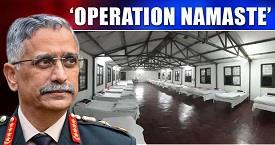
Operation Namaste was launched by Army Chief General Manoj Mukund Naravane to extend assistance to the government in containing the spread of coronavirus. Coronavirus disease 2019 (COVID-19) is an infectious disease caused by severe acute respiratory syndrome coronavirus 2 (SARS-CoV-2). The disease spread globally, resulting in the 2019–20 coronavirus pandemic.
Under 'Operation Namaste', Indian army established eight quarantine facilities across the country, Army Wellness Facility centers and command wise helplines. The Indian Army has code-named its anti-COVID-19 operations as Operation Namaste.
63 - Government created PM-CARES Funds to fight against COVID-19
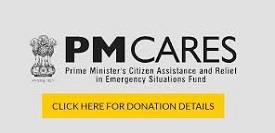
Prime Minister Narendra Modi announced the constitution of the PM's Citizen Assistance and Relief in Emergency Situations (PM-CARES) fund. It is a dedicated national fund with the primary objective of dealing with any kind of emergency or distress situation, like posed by the COVID-19 pandemic. Prime Minister is the Chairman of this trust and its Members include Defence Minister, Home Minister and Finance Minister.
Citizens and organisations can go to the website pmindia.gov.in and donate to PM CARES Fund. Donations to this fund will be exempted from income tax under section 80(G).































































